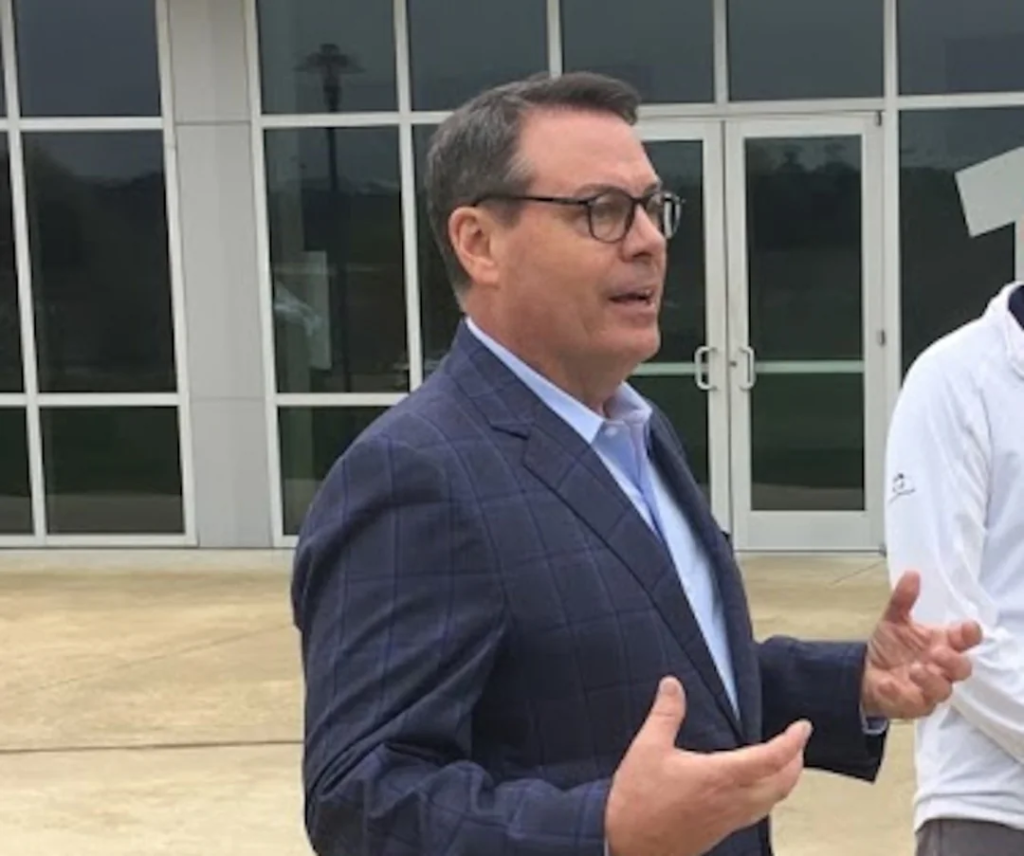In recent developments that have sent shockwaves through the Church of the Highlands congregation, Pastor Chris Hodges has become embroiled in a scandal that threatens to tarnish his decades-long ministry. This event has sparked intense media scrutiny and prompted a deeper examination of leadership accountability within megachurches. In this detailed analysis, we delve into the scandal’s intricacies, the church community’s reactions, and the broader implications for evangelical organizations.

The Genesis of the Scandal
The controversy surrounding Pastor Chris Hodges surfaced when allegations about inappropriate behavior and potential misuse of church funds came to light. Reports suggest that several former and current church staff members brought accusations that pointed towards a behavior unbefitting a church leader. These allegations have raised questions about the governance structures in place at the Church of the Highlands and whether they are robust enough to oversee leaders at the highest levels.
Immediate Reactions and Responses
As news of the scandal broke, the Church of the Highlands quickly responded. The church’s leadership team issued a statement emphasizing the church’s commitment to transparency and integrity. They announced they would initiate an independent investigation to probe the allegations against Pastor Hodges thoroughly. In parallel, Pastor Hodges stepped down from his duties, stating his intention to cooperate fully with the investigation and to focus on a period of reflection and repentance.
The reaction from the church community has been mixed. While some members have expressed shock and disappointment, others have rallied around their pastor, citing his years of positive impact and leadership. This division reflects a more significant trend within religious communities where charismatic leadership often leads to intensely loyal followings.

The Role of Leadership in Megachurches
This scandal brings to the forefront the unique dynamics of leadership within megachurches. Leaders like Chris Hodges are not just spiritual guides but also CEOs of large, complex organizations. With the Church of the Highlands being one of the largest churches in America, the responsibilities and pressures on its leaders are immense. This dual role can sometimes lead to conflicts of interest and challenges in maintaining accountability.
Experts in religious studies suggest that megacmegachurches ‘cultures can sometimes obscure transparency and oversight, allowing leaders to go unchecked for long periods. The Church of the Highlands scandal is a case study of the need for robust checks and balances within religious organizations.
Financial Implications and Church Operations
Another significant aspect of this scandal involves the Church of the Highlands financial operations. Allegations of misuse of funds have prompted reevaluating how finances are managed. Given the substantial revenue from donations and book sales, the church’s potential for financial discrepancies poses a serious risk to its credibility and ability to function effectively.

Since then, the church has pledged to overhaul its financial oversight mechanisms. This includes introducing more stringent auditing processes and ensuring multiple stakeholders are involved in economic decision-making. These changes aim to restore trust and ensure that church funds are used appropriately.
Broader Implications for Evangelical Organizations
The Pastor Chris Hodges scandal is not an isolated incident. Over the years, several high-profile leaders of evangelical organizations have been implicated in scandals, highlighting a systemic issue within some religious institutions. These incidents have spurred a broader discussion about the need for greater accountability and transparency in religious organizations.
Scholars and religious ethicists argue that religious organizations must be managed differently, suggesting that adopting standards similar to those in the corporate sector could benefit religious communities. This includes financial audits, regular performance reviews, and accountability mechanisms involving lay members of the church.
Moving Forward: Healing and Reformation
As the Church of the Highlands navigates this turbulent period, the focus is increasingly on healing and reform. The church has initiated several community outreach programs to rebuild trust and engage with its members more transparently. Additionally, there is an emphasis on spiritual renewal programs that seek to realign the activities with its core religious mission.
The road to recovery for the Church highlchurch’sighlandsg is fraught with challenges. However, this scandal has also allowed the church to introspect and evolve. By addressing its structure and governance flaws, the Church of the Highlands can hope to emerge more robust and more resilient.

Conclusion
The scandal involving Pastor Chris Hodges has rocked the Church of the Highlands but has also opened up essential conversations about leadership and accountability in religious organizations. As the church moves through this difficult time, the lessons learned here could serve as valuable blueprints for other religious institutions grappling with similar challenges. Ultimately, the effectiveness of these reforms will be judged by their ability to foster an environment of trust, accountability, and spiritual integrity within the Church of the Highlands and beyond.








